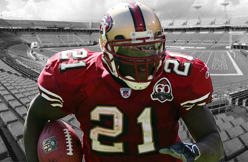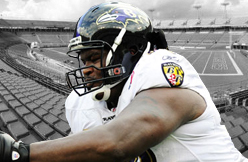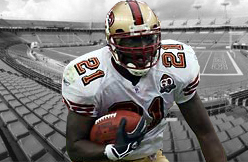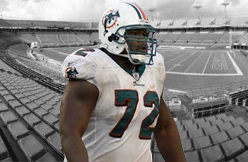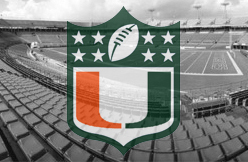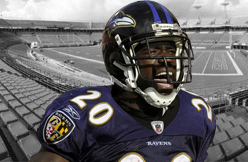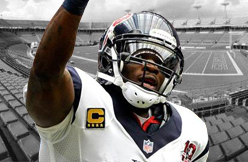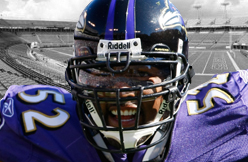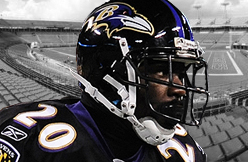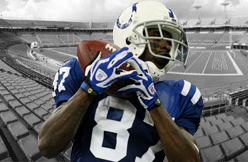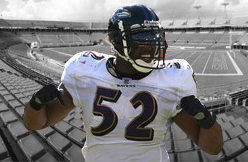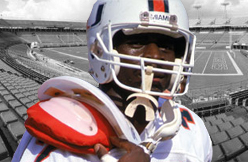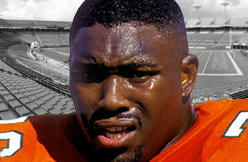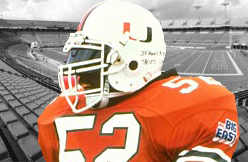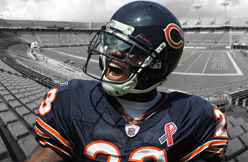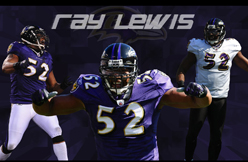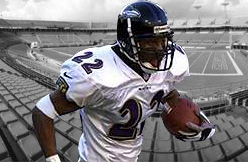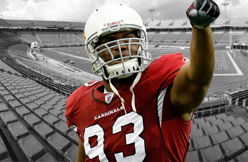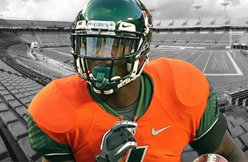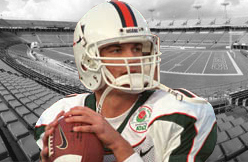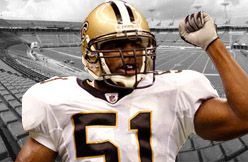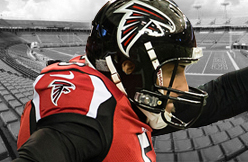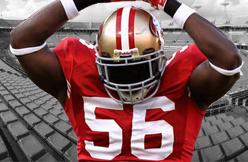LAKELAND, Fla. – No street is named after Ray Lewis in his hometown.
City fathers have yet to erect a statue or post a plaque bearing the name of their local football hero, one of the NFL's most popular and decorated players. No "Welcome to the home of Ray Lewis'' sign can be found in a region dominated by citrus groves, cattle farming and phosphate mining.
But in Baltimore, there is Ray Lewis Way.
The Ravens middle linebacker is worshipped for his on-field exploits during 17 seasons and community activism in Charm City, which includes his Ray Lewis 52 Foundation to aid disadvantaged youth. In October, the Maryland chapter of the National Wrestling Hall of Fame honored Lewis with the organization's "Outstanding American'' award for commendable deeds beyond the sport.
Back home in central Florida, and nationally, the view is more polarized. Perceived past slights, questions about Lewis' involvement in a double-homicide 13 years ago in Atlanta, and his fathering six children with four women, none of whom he married, seem to haunt Lewis.
Anna Burns Welker, wife of New England Patriots receiver Wes Welker, dredged up Lewis' past with a Facebook rant last Sunday after the AFC title game, writing in part: "A true role model!" She apologized after a dust-up ensued.
But even in Lakeland, "You have two camps'' of thought, says Stephen Poole, who coached Lewis when he was a state champion prep wrestler.
"Some people love him to death – 'Ray's this and Ray's that.' Then there are others who do not like Ray. They feel he should be doing more for (his alma mater) Kathleen High and Lakeland. He has done well for himself but some are jealous,'' Poole told USA TODAY Sports.
Ernest Joe is a former head coach of the Kathleen High Red Devils football team. A large man with a friendly yet commanding presence, he is – like Lewis – a man of faith. The Baptist church deacon and Sunday school teacher shakes his head when he ponders one of Christianity's most important tenets in relation to a man he considers his son.
"I read something online with folks bringing up old stuff about Ray; it made me angry,'' Joe said. "We want people to forgive us, but we don't want to forgive anyone else.
"Ray has to rise above it. He's been movin' on. As far as I know, he's been leading a good life by not getting in trouble. People just can't hone in on the bad thing. What about the good things?''
On the field, no doubters remain. Lewis, 37, plans to play his final game Feb. 3 in New Orleans. The 13-time Pro Bowler will give his last inspirational pre-game speech to his Ravens as they meet the San Francisco 49ers in Super Bowl XLVII.
Lakeland 'always home'Lewis is the only current Raven with a championship ring after he was named Most Valuable Player in Super Bowl XXXV in 2001 in Tampa, 35 miles from where he was raised.
In the days leading up to that game, Lewis was asked about his hometown.
"He was being flip and said it was a one-light town,'' recalled Lakeland mayor Gow Fields. "Many people were offended ... One reason the community is as sensitive as it is, is that Polk County is looked down upon as being rural and poorly educated. People with that chip on their shoulder expected Ray to say something positive.''
Asked Thursday in Baltimore about how he is viewed in Lakeland, Lewis warmly said, "That's always home. That's where everything (is) that I'm connected to."
He was born in Bartow, about 12 miles from Lakeland, located between Tampa and Orlando along the I-4 corridor. A city of nearly 100,000, Lakeland also is known as the longtime spring training base for the Detroit Tigers and for 38 (named) lakes.
With an African-American population of about 20%, the city also has a history of racial divisiveness. At one time, the grand dragon of the Ku Klux Klan had a Polk County address, which Fields paints as "part of the historical image of the community.''
During the Ravens' 34-7 wipeout of the New York Giants in Super Bowl XXXV, Lewis was unstoppable. But afterward, he was not permitted to appear on camera to give the customary "I'm going to Disneyland!'' exclamation reserved for Super Bowl MVPs. His likeness did not grace the cover of a Wheaties box.
For many, Lewis had become a leper.
A year earlier, Lewis, then 26, and two friends were charged with murder in the deaths of Richard Lollar, 24, and Jacinth Baker, 21. In a plea-bargain agreement, Lewis pled guilty to a misdemeanor charge of obstruction of justice for lying to police. He received a year's probation, and the NFL fined him $250,000.
Co-defendants Reginald Oakley and Joseph Sweeting were acquitted. Lewis later reached financial settlements with parties related to the slain men.
Lewis had just completed his fourth NFL season in 2000. He led the league in tackles and was headed to his third consecutive Pro Bowl in Hawaii. Instead of a relaxing offseason, he found himself in a jail cell.
"He called me from Fulton County Jail,'' Joe recalled. "I said, 'Look, you gotta tell me ... tell me the truth.' He said, 'Coach, I had nothing to do with this. I was there but I didn't do what they say.'
"That was good enough. We prayed. But I wanted to see him; I wanted him to look me in the eyes and talk like a man. It was tough seeing him behind bars. ... Here's a kid you groomed. (At trial), it was like my own child going through that ordeal.''
Lewis has declined to comment on the Atlanta incident.
Friends see changed manToday, family and friends back home say that "Baby Ray'' is a changed man, a better man.
Yet, redemption seems to have come slowly.
A lock for the Pro Football Hall of Fame, Lewis was not inducted into his high school's Hall of Fame until 2009, long after he starred for the Miami Hurricanes and Ravens. That night, an emotional Lewis asked the audience: "What will your legacy be when your eyes are closed?''
Lewis is "perceived a far different way here than in Baltimore,'' says Earl Brown, a college professor, life coach and pastor who has known Lewis since childhood. "He has his naysayers (here). But he hasn't forgotten his roots.''
Lewis' father, Elbert Jackson, abandoned the family when Lewis was 6. Lewis was born to a 16-year-old mother, Sunseria "Buffy'' Smith, and the family lived in the projects until she eventually moved to Tennessee with her other children. Lewis remained in Lakeland and was raised by his supportive maternal grandparents, Gil and Elease McKinney, a school teacher.
"I think he longed for his father,'' Joe says.
"At one time, I thought (Lewis) would settle down ... We've never had a conversation about it. But I know he provides for his children. If he didn't, I would be on him.”
In recent years, Lewis has formed a relationship with his dad, who also was a stellar athlete at Kathleen but later struggled with drug addiction. The father and son exchanged a warm embrace in Lewis' final Ravens home game during the player's end-zone celebration with family. Lewis has said he wants to spend more time with his children, including watch Ray Lewis III play for the Hurricanes.
When he was young, Lewis received encouragement from mentors and positive role models, including his coaches and people such as Clinton Wright.
Kathleen's principal made sure that Lewis was admitted into college after he struggled to post acceptable standardized test scores.
"Ray is standing on the shoulders of a lot of people,'' said Deborah Wright, who tutored Lewis at the behest of her late husband. "We're still behind him today. He is not only a wealth (of good) in our community, he is a prime example of that old African tale that it takes an entire (village) to raise a child.''
"The only reason I'm here now is because of my hometown . . . because of the way we are,'' Lewis said Thursday. "We're way more country than you would think, and we have a certain love and togetherness there.''
At Kathleen, Lewis played linebacker and running back. He wrestled as a 189-pounder, but Poole said "he wasn't that strong – really.''
Poole recalled Lewis as an upbeat young man who proudly wore his ROTC uniform, a "good kid who never got written up.''
Poole mentioned the film Remember the Titans and said, "Ray was like one of those kids: 'We've got work to do!' Always laughing and smiling, always positive. I always was a Ray Lewis fan ... even in the dark days.''
Coach Joe said Lewis "had to learn the hard way'' from a deadly lesson that nearly cost him everything.
"In the community where I grew up, old folks had a saying: 'If you hang around dogs, you're going to pick up fleas,'" said Joe, now a senior director for the county school district. "He was just like any other young person – everybody's their friend (and) it's OK to have a posse. He hadn't learned (about life).''
In recent years, Lewis' frosty relationship with his hometown has displayed signs of thawing.
In 2011, during the same week he opened his foundation's Lakeland office, Lewis spoke at the city's CommUnity Celebration. Last spring, the foundation hosted Ray's Spring Fest, a fundraiser that included youth fitness clinics and a celebrity bowling tournament.
"Even though some folks still have some confusion over the (legal) challenges he had, the bottom line is this: Ray Lewis is a tough guy who has shown a compassionate heart for his community,'' said city Commissioner R. Howard Wiggs.
Mayor Fields told USA TODAY Sports, "I think today there are a lot of people who believe that Ray is, spiritually and emotionally, in a different place then when that (Atlanta) incident occurred.''
Joe accepts that people are entitled to their opinions. But when he thinks of Ray Anthony Lewis, he recalls an "extraordinary kid'' who always overcame adversity.
"Just like he fires up the Ravens now, he was the same way then,'' he said. "There were times I had to slow him down. He was like a magnet; kids just got excited about him. (After his triceps injury this season), he texted me, 'No weapon formed against me is gonna prosper.' He took it as a (challenge). I knew he would come back with a vengeance. He is a natural.''
The retired coach looked up and smiled.
"Like God blew a little extra talent on him,'' he said.

(usatoday.com)




